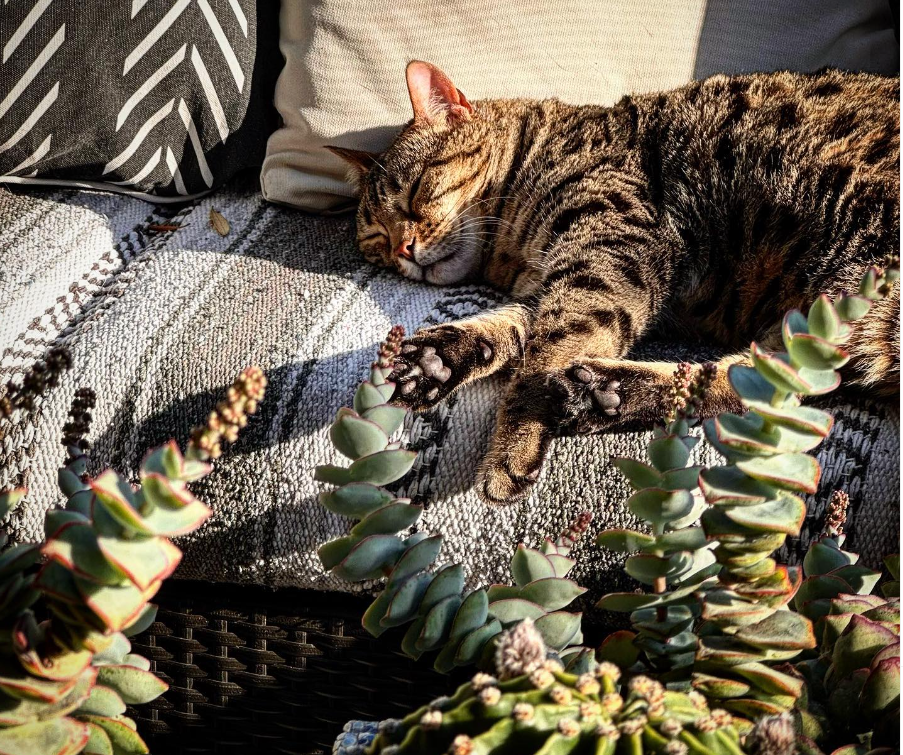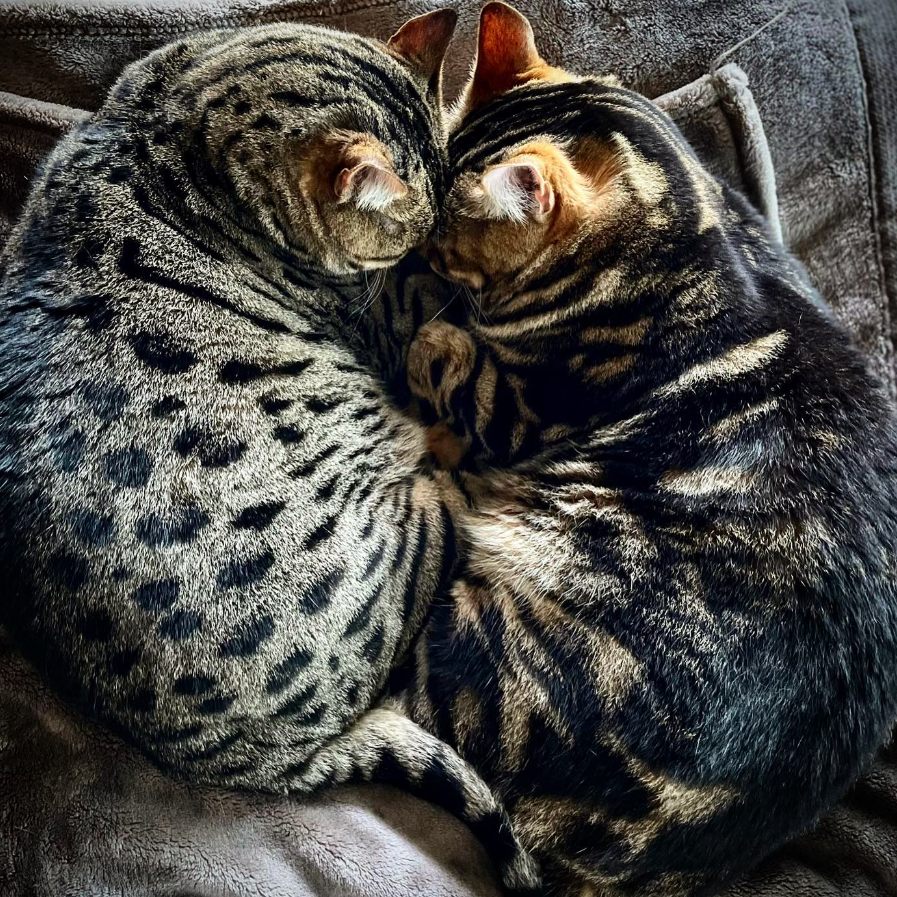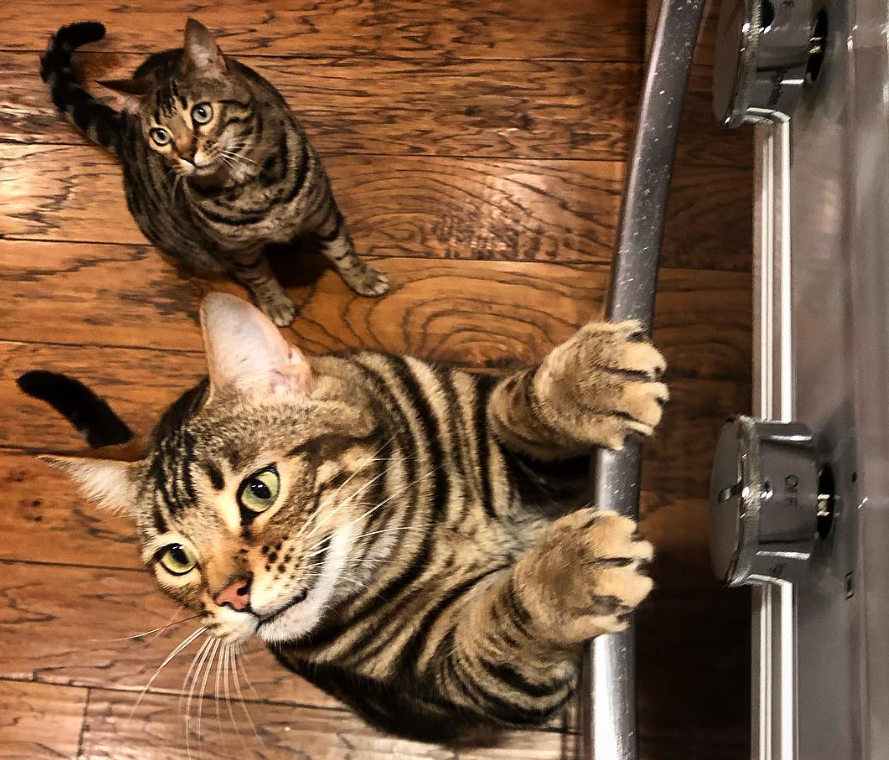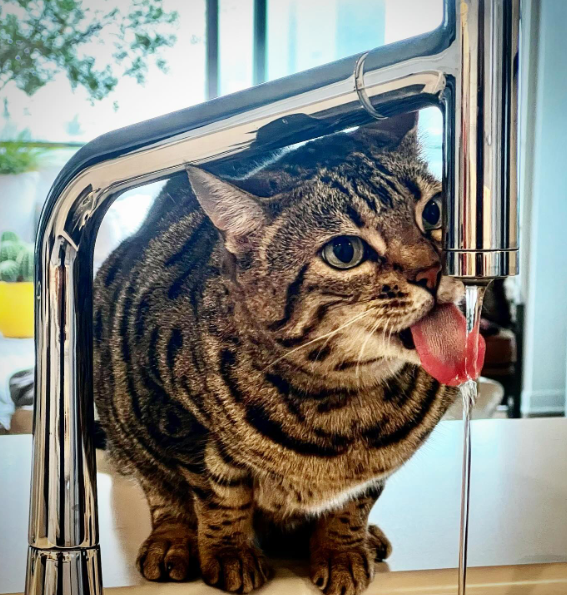Bengal cats are a popular breed of domestic cats known for their exotic appearance and playful personality. However, Bengal cats are illegal in some states across the United States.
As a cat lover, I was curious to know why some states prohibit the ownership of Bengal cats.
After conducting research, here’s the lowdown: I found that the main reason for making Bengal cats illegal in some states is their unpredictable nature, particularly in the first to fourth generations (F1 to F4).
Early Generations of Bengals Deemed Challenging

These early-generation Bengals often retain wild traits that make them challenging to handle as typical domestic pets. In some cases, they may exhibit aggressive behavior or destructive tendencies, which can pose a risk to both their owners and the surrounding community.
Despite their beauty and charm, Bengal cats are not legal in several states.
In the following sections, I will explore the states where Bengal cats are illegal and the reasons behind these laws.
What reasons do states give for the prohibition of Bengal cats?
As I researched, I found that several states in the US have prohibited the ownership of Bengal cats.
The reasons behind the prohibition vary from state to state. Here are some of the reasons that states give for the prohibition of Bengal cats:
1. Concerns about the wild nature of Bengal cats
Some states, such as Hawaii, New York City, and Seattle, have banned Bengal cats because they are a hybrid of a domestic cat and a wild Asian leopard cat.
2. Potential danger to the environment
Alaska has banned all Bengal cats less than four filial generations removed from the Asian leopard cat.
The Alaskan government is concerned that Bengal cats could escape into the wild and potentially harm the environment by preying on native wildlife.
3. Health concerns
Some states, such as Georgia, have restrictions on owning Bengal cats due to health concerns.
These cats are prone to certain health issues such as hypertrophic cardiomyopathy, which is a heart disease that can be fatal.
Understanding the Regulations

In this section, I’ll provide an overview of the legality and restrictions in various states, the reasons for the ban on Bengal cats, ownership and breeding considerations, and tips for navigating the legal landscape.
Legality and Restrictions in Various States
Bengal cats are illegal in some states due to concerns about their wild ancestry and potential threat to local ecosystems.
States such as Hawaii, California, Georgia, Massachusetts, New York, Alaska, Connecticut, Delaware, Indiana, Iowa, Colorado, Washington, and Utah have restrictions on owning exotic pets, including Bengal cats.
Some cities, such as New York City and Seattle, also prohibit keeping Bengal cats as pets due to specific legal restrictions for domestic and wild cat hybrid species.
Ownership and Breeding Considerations
If you’re interested in owning a Bengal cat, it’s important to do your research and ensure you’re prepared for the responsibility of owning an exotic pet.
Responsible ownership includes providing proper care, obtaining the necessary permits and licenses, and working with reputable breeders who practice ethical breeding practices and screen for genetic issues.
Navigating the Legal Landscape
Navigating the legal landscape surrounding Bengal cats can be challenging, but there are resources available to help.
The International Cat Association (TICA) provides information on the legal status of Bengal cats and offers resources for pet owners and breeders.
Local ordinances and regulations can vary, so it’s important to research the laws in your area and work with a reputable breeder who can provide guidance on obtaining the necessary permits and licenses.
Why are Bengal Cats Illegal in NYC?

The reason for this ban is related to the cat’s genetic heritage.
Bengal cats are a hybrid breed that originated from the Asian leopard cat and a domestic cat. These cats have a wild ancestry, which makes them illegal in NYC. The city’s health code prohibits the ownership of any wild animal, including hybrid breeds like this particular feline.
Moreover, these cats have a reputation for being high-energy and playful, which can make them difficult to manage in a city environment.
This breed requires a lot of attention, exercise, and mental stimulation to stay healthy and happy. The city’s cramped living spaces and busy streets are not suitable for such an active breed.
Lastly and rightfully so, the city’s animal welfare organizations have expressed concerns about the breeding practices of Bengal cats.
Some breeders use unethical methods to produce these cats, which can result in health problems and behavioral issues. As a result, the city has banned the breeding and sale of Bengal cats.
Why are Bengal Cats Illegal in Hawaii?
Hawaii has a ban on Bengal cats due to their potential threat to the native birds and monk seals in the region.
Bengal cats are known for their hunting instincts and are considered to be excellent hunters. However, in Hawaii, their hunting instincts can cause significant damage to the native bird population.
The birds in Hawaii are already facing challenges due to the introduction of non-native species, and the presence of Bengal cats could further threaten their survival.
Another interesting fact is that Bengal cats may carry a parasite that can harm the monk seals in Hawaii.
Monk seals are an endangered species and are considered to be a vital part of the Hawaiian ecosystem.
Why are Bengal cats illegal in Montana?

Montana has classified Bengal cats as “potentially dangerous animals” due to their wild ancestry, just like Alaska.
Montana state law requires that any animal that is considered potentially dangerous must be registered and kept in a secure enclosure. However, Bengal cats are not allowed to be registered as pets in Montana, which means they cannot legally be owned or kept as pets in the state.
Why are Bengal cats illegal in Nebraska?
Again, the reason behind this ban is because Bengal cats are considered to be a hybrid breed.
Bengal cats are a cross between domestic cats and Asian leopard cats, a wild species of cat. This makes them a unique breed, but also means that they may exhibit wild behaviors that can be dangerous to humans and other pets.
They are also known to be escape artists and may try to run away from their owners. This can be a problem in Nebraska, where there are strict laws regarding the ownership of exotic animals.
Why are Bengal cats illegal in Rhode Island?

It’s illegal to own a Bengal cat in Rhode Island because they are considered a hybrid animal.
Rhode Island law prohibits the ownership of any animal that is a hybrid of a domestic and wild animal, which includes Bengal cats.
This law was put in place to protect both the public and the animal itself.
What regulations affect the ownership of Bengal cats in various states?
The regulations that affect the ownership of Bengal cats in various states include licensing requirements, permits, and restrictions on the number of cats that can be owned.
Some states require permits for the ownership of Bengal cats, while others do not.
Also, some states have restrictions on the number of cats that can be owned per household.
